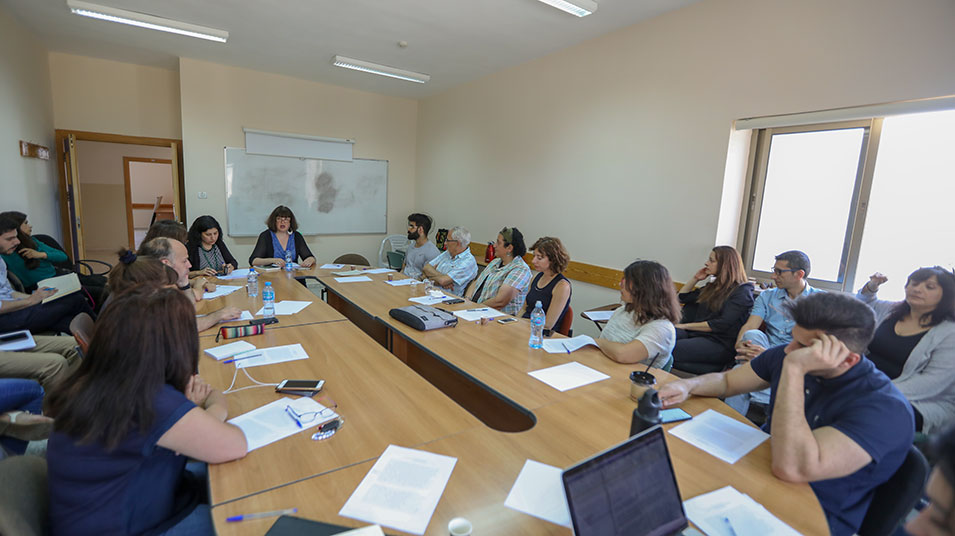Visiting anthropology professor discusses feminism in Hawaii
J. Kēhaulani Kauanui, a professor of American studies and anthropology at Wesleyan University, discussed the relationship between feminism and the national aspirations of native Hawaiian women in a symposium organized by Birzeit University’s Center for Development Studies and the Institute of Women’s Studies on Tuesday, June 11, 2019.
Linda Tabar, director of the Center for Development Studies, introduced Kauanui and her work, and emphasized the center’s strategy of promoting connections to indigenous peoples around the world and bolster anti-colonial activities.
Kauanui started by explaining the theoretical underpinnings of this talk, saying that it branched off of her in-progress book, “Decolonizing Traditions: Native Hawaiian Women and the Question of Feminism,” which itself started as an offshoot of another project.
Kauanui discussed the relationship between Hawaiian nationalism, indigenous sovereignty, decolonization, and feminist movements in the U.S. and internationally. In particular, she focused on where Hawaiian women’s struggles and aspirations fit within women-of-color feminist movements and struggle.
Examining the U.S. civil rights movement and the first wave of feminism, Kauanui noted that some issues, such as suffrage, generated a rift, underscored by racial tensions, between feminist movements led by white women and those led by women of color. She added that such issues also created and exacerbated friction in the Hawaiian nationalist movement between those who wish to pursue autonomy within the confines of the federalist system of the U.S.as a colonial power, and those who wanted to achieve full independence from the U.S.
Kauanui also explored the relationship between indigenous Hawaiian women and feminism, saying that the concept was redundant in the region as patriarchal systems of thought and action were themselves a foreign concept that was introduced with the U.S. settler colonization and annexation of the region. Hawaiian native women, she explained, rely on a collective understanding of an egalitarian history that does not lend itself to the patriarchy.
This understanding, Kauanui noted, was transformed by Christianization especially at a time when the native population founded the Hawaiian Kingdom as a response to western encroachment. By the mid-to-late 19th century, native Hawaiian men gained social and political footing above native Hawaiian women, she said.








